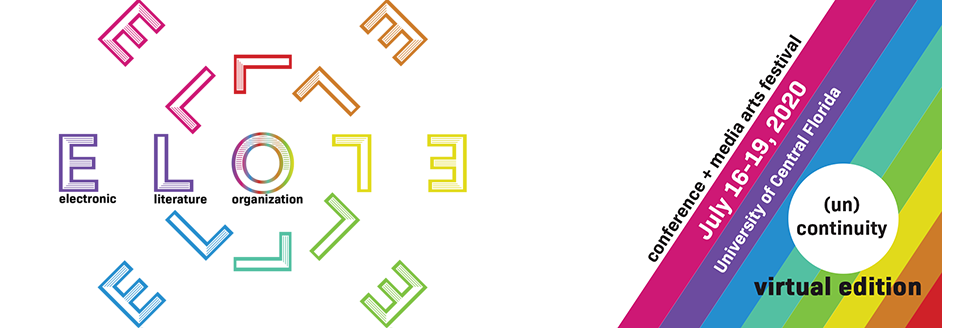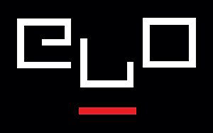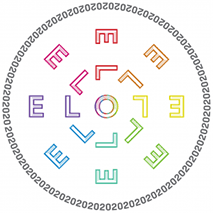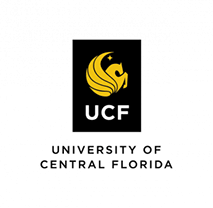Proposal Title
A Stretch of the Imagination: Transforming Writing Under Constraint into an Inclusive Practice
Streaming Media
Submission Type
Conference Talk - Individual
Abstract
A Stretch of the Imagination: Transforming Writing Under Constraint into an Inclusive Practice
In electronic literature, the practice of writing under constraint is widely accepted as a creative catalyst; through self-imposed textual restraints, we find new meanings and forms. At the same time, some of us are often reading and writing under constraint due to various disabilities. Yes, we can describe electronic literature as “formally inventive” in its wide use of multimedial writing, but no text or its reception is purely formal because it is always material, situational, and embodied as well.
Bringing up accessibility of these texts generally leads to a knee-jerk reaction: "I don’t want to be limited", "it would stifle my creative freedom", or, god forbid, "why does everything have to be so politically correct?" What if we move past this initial resistance not toward denial, rejection, or a resigned compliance, but with the same creative energy that we allow other forms of writing under constraint?
This essay rewrites Joe Tabbi’s essay “Electronic Literature as World Literature, or, the Universality of Writing under Constraint” through the lens of disability. I explore the concept of digital accessibility by speculating upon what accessible electronic literature can be.
NOTE: to watch this video presentation with subtitles, click on the title at the top of the embedded video, or click the following link and click the CC button: https://www.youtube.com/watch?v=sk0BVQmR5aM
Works Cited
2018. Disrupting the Digital Humanities. Earth, Milkyway: punctum books.
Kim, Dorothy. 2019. "Building Pleasure and the Digital Archive." In Bodies of Information: Intersectional Feminism and the Digital Humanities, edited by Elizabeth Losh and Jacqueline Wernimont. U of Minnesota Press.
Schalk, Sami. 2018. Bodyminds Reimagined:(Dis) ability, Race, and Gender in Black Women's Speculative Fiction: Duke University Press.
Tabbi, Joseph. 2010. "Electronic literature as world literature; or, the universality of writing under constraint." Poetics Today 31 (1):17-50.
A Stretch of the Imagination: Transforming Writing Under Constraint into an Inclusive Practice
A Stretch of the Imagination: Transforming Writing Under Constraint into an Inclusive Practice
In electronic literature, the practice of writing under constraint is widely accepted as a creative catalyst; through self-imposed textual restraints, we find new meanings and forms. At the same time, some of us are often reading and writing under constraint due to various disabilities. Yes, we can describe electronic literature as “formally inventive” in its wide use of multimedial writing, but no text or its reception is purely formal because it is always material, situational, and embodied as well.
Bringing up accessibility of these texts generally leads to a knee-jerk reaction: "I don’t want to be limited", "it would stifle my creative freedom", or, god forbid, "why does everything have to be so politically correct?" What if we move past this initial resistance not toward denial, rejection, or a resigned compliance, but with the same creative energy that we allow other forms of writing under constraint?
This essay rewrites Joe Tabbi’s essay “Electronic Literature as World Literature, or, the Universality of Writing under Constraint” through the lens of disability. I explore the concept of digital accessibility by speculating upon what accessible electronic literature can be.
NOTE: to watch this video presentation with subtitles, click on the title at the top of the embedded video, or click the following link and click the CC button: https://www.youtube.com/watch?v=sk0BVQmR5aM
Works Cited
2018. Disrupting the Digital Humanities. Earth, Milkyway: punctum books.
Kim, Dorothy. 2019. "Building Pleasure and the Digital Archive." In Bodies of Information: Intersectional Feminism and the Digital Humanities, edited by Elizabeth Losh and Jacqueline Wernimont. U of Minnesota Press.
Schalk, Sami. 2018. Bodyminds Reimagined:(Dis) ability, Race, and Gender in Black Women's Speculative Fiction: Duke University Press.
Tabbi, Joseph. 2010. "Electronic literature as world literature; or, the universality of writing under constraint." Poetics Today 31 (1):17-50.




Bio
I am a PhD student in Digital culture at the University of Bergen in Norway. In my research project, I study the social and technological aspects of the digital practices by scholars in the field of electronic literature in order to provide new insights into the importance of digital tools as theory-building methodologies in the humanities. I distinguish three intertwined attributes of digital tools that shape research practices and outcomes: Databases (storing), Experiments (playing), and Platforms (showing). I teach courses on topics across electronic literature and digital humanities. In addition to my research agenda and teaching record, I have been co-director of the Digital Humanities Network at the University of Bergen and I am on the ELMCIP Knowledge Base editorial board.